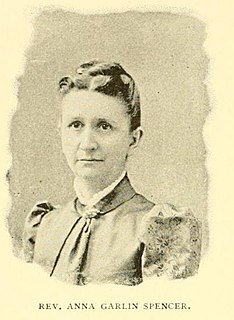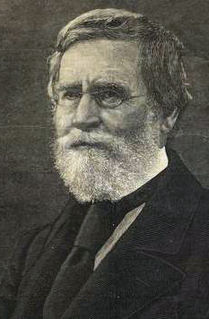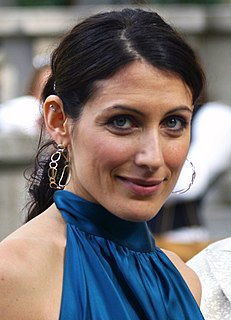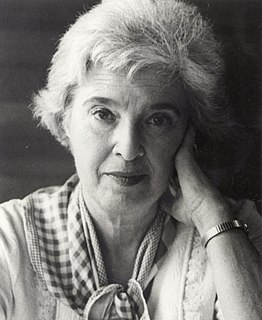A Quote by Anna Garlin Spencer
It is not alone the fact that women have generally had to spend most of their strength in caring for others that has handicapped them in individual effort; but also that they have almost universally had to care wholly for themselves
Related Quotes
Keep children as much as possible by themselves ... keep them from company, good or bad. ... It will be generally found that the most virtuous and the most intellectual, are those who have been brought up with few companions. ... in fact his mental resources may be considered entirely unknown and unexplored, who cannot spend his best and happiest hours alone.
The cure is care. Caring for others is the practice of peace. Caring becomes as important as curing. Caring produces the cure, not the reverse. Caring about nuclear war and its victims is the beginning of a cure for our obsession with war. Peace does not comes through strength. Quite the opposite: Strength comes through peace. The practices of peace strengthen us for every vicissitude. . . . The task is immense!
I think that women of my generation have had a real need to form networks and friendships because it's been, as they say, a man's world, and women have felt excluded and isolated to a large degree. When women get together in numbers their strength compounds and is seen and felt by themselves and others.
Most persons are so absorbed in the contemplation of the outside world that they are wholly oblivious to what is passing on within themselves. The premature death of millions is primarily traceable to this cause. Even among those who exercise care, it is a common mistake to avoid imaginary, and ignore the real dangers. And what is true of an individual also applies, more or less, to a people as a whole.
The man of genius is he whose ego has acquired consciousness. He is enabled by it to distinguish the fact that others are different, to perceive the "ego" of other men, even when it is not pronounced enough for them to be conscious of it themselves. But it is only he who feels that every other man is also an ego, a monad, an individual centre of the universe, with specific manner of feeling and thinking and a distinct past, he alone is in a position to avoid making use of his neighbours as means to an end.
I probably have more female friends than any man I've ever met. What I like about them is that almost always they're generally mentally tougher, and they're better listeners, and they're more capable of surviving things. And most of the women that I like have a haunted quality - they're sort of like women who live in a haunted house all by themselves.
I think that popular culture takes a long time to catch up to what's actually happening in the world. Women have had to take care of themselves for quite a while. Actually, not had to take of themselves, but have wanted to take care of themselves, so I think it's a big transition that our country and our society has been going through a long time.
Men develop ideas and systems of explanation by absorbing past knowledge and critiquing and superseding it. Women, ignorant of their own history [do] not know what women before them had thought and taught. So generation after generation, they [struggle] for insights others had already had before them, [resulting in] the constant inventing of the wheel.
If we consider men and women generally, and apart from their professions or occupations, there is only one situation I can think of in which they almost pull themselves up by their bootstraps, making an effort to read better than they usually do. When they are in love and are reading a love letter, they read for all they are worth.
There’s a saying in Africa, if you give a woman empowerment, you empower a community, you empower men, you empower man. When women become empowered and live in their strength it’s beneficiary to others, and I think as young women today we sometimes forget that we are standing on the struggle of other women. Those women had to stand up to make a change, and they were not popular, and now we’re making them unpopular again.
There were others, women with stories that were told in a quieter voice: women who hid Jewish children in their homes, putting themselves directly in harm's way to save others. Too many of them paid a terrible, unimaginable price for their heroism. And like so many women in wartime, they were largely forgotten after the war's end.There were no parades for them, very few medals, and almost no mention in the history books.
From an early age she had developed the art of being alone and generally preferred her own company to anyone else’s. She read books at enormous speed and judged them entirely on her ability to remove her from her material surroundings. In almost all the unhappiest days of her life she had been able to escape from her own inner world by living temporarily in someone else’s, and on the two or three occasions that she had been too upset to concentrate she had been desolate.




































